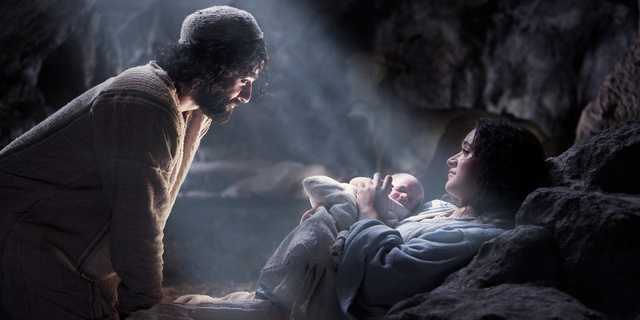If Donkeys Could Talk: The Point Of Speculative Fiction
Speculative fiction is known for . . . well, speculation. Writers ask the “what if” question in ways that break known boundaries. What if a magic world exists on the other side of the wardrobe? What if a white witch ruled and prevented Christmas from coming? What if dwarfs and elves and wizards once roamed the world? What if space travel allowed people on Earth to discover other populated planets throughout the universe? What if time travel were possible? What if parallel universes traversed by ley lines existed? And on and on.
 Speculation. The fun part of speculative fiction of any stripe—superhero, classic fantasy, steampunk, dystopian, space opera, you name it—is this look beyond the known, beyond the empirical, to the imaginative.
Speculation. The fun part of speculative fiction of any stripe—superhero, classic fantasy, steampunk, dystopian, space opera, you name it—is this look beyond the known, beyond the empirical, to the imaginative.
But why does anyone want to do that? Why did hundreds of thousands of people read the Harry Potter books, then go see the movies? Why did so many young girls get invested in the choice a heroine made between a vampire or werewolf? Why did a movie franchise grow up around the existence of galactic alliances and empires and rogue smugglers?
C. S. Lewis gave the best answer:
“If we find ourselves with a desire that nothing in this world can satisfy, the most probable explanation is that we were made for another world.” (Lewis Quotes)
The desire for a superhero, the desire for a larger place, the desire for a world in which right can fight against wrong and actually win—these are the yearnings that drive, not only audiences, but writers, to the imaginary.
But is the speculative only imaginary? Isn’t some of what we long for true and present within the pages of Scripture?
No, there are no zombies in the Bible, but what do we make of the young boy who died while listening to Paul preach all night, and then came back to life when the apostle prayed? What about Lazarus or a handful of other revived people who had been pronounced dead?
What about mediums who apparently did talk to people who were alive in the afterlife? What about three men surviving an execution when their guards couldn’t? What about mysterious armies of God” that only prophets could see? And what about talking donkeys? Or snakes, for that matter?
The amazing thing is that the Bible opens up a realm that seems better fit for that which makes up myths and fairytales, yet it claims to be true. A virgin birth. A host of angels visiting shepherds. A star that acts like a GPS. Aren’t those elements of great speculative fiction?
Yes. But God . . .
 God flips reality on it’s head. What we think of as solid and verifiable and true, He calls a vapor, a fading flower, a bit of grass that is here today and gone tomorrow. What lasts, what is forever, is God’s word, the eternal life He gives, His Person.
God flips reality on it’s head. What we think of as solid and verifiable and true, He calls a vapor, a fading flower, a bit of grass that is here today and gone tomorrow. What lasts, what is forever, is God’s word, the eternal life He gives, His Person.
What we think of as impossible—God in human flesh, His Son bearing the sins of the world, His Spirit taking up residence in the life of every believer—has become almost ho-hum in the religious environment of western civilization.
Perhaps the “other world” we’re made for, which Lewis allude to, has become either too familiar or too much like the speculative fiction we enjoy. Are we losing our ability to tell the real from the make-believe? Have we forgotten that there is a greater reality that our speculation points to? Do we live for the pretend more than we live for the permanent?
No book helped me see my own attitude about this life and the next more that Lewis’s Great Divorce.
That book simply revolutionized my understanding. Life after life is what’s real, what’s solid, and it is the temporal life we now experience that is wispy and ephemeral. Imagine my surprise to learn that Lewis’s view was also Scriptural. (“Yet you do not know what your life will be like tomorrow. You are just a vapor that appears for a little while and then vanishes away” James 4:14).
The thing is, C. S. Lewis didn’t correct my thinking by giving me a theological treatise on the afterlife. Rather, he showed, from his imagination, the reality of life beyond this life. No, I’m not suggesting that Lewis had some vision of heaven and that he gave an account of what we can expect to which I must cling as if it is Scripture itself.
What Lewis did was alter my understanding by giving his own imaginative version that contradicted everything I’d thought before. He showed eternal life to be the true reality, not the vaporous wisp I’d imagined it to be. He showed heavenly riches to be far surpassing anything of earthly substance. He portrayed heaven to be rich with certainty and joy, and hell to be isolating and filled with selfishness.
A fairy tale? Indeed. Lewis made up his Gray Town and his Ghosts and Solid People, but in so doing, he showed me, at least, that life after life is what matters most, that this prologue we’re in is critical but not complete in and of itself, that its meaning is in relation to the whole story. (from “The Truth And Story”)
Speculative fiction points to the real story, and the real story is far more fantastic than we often admit.











































